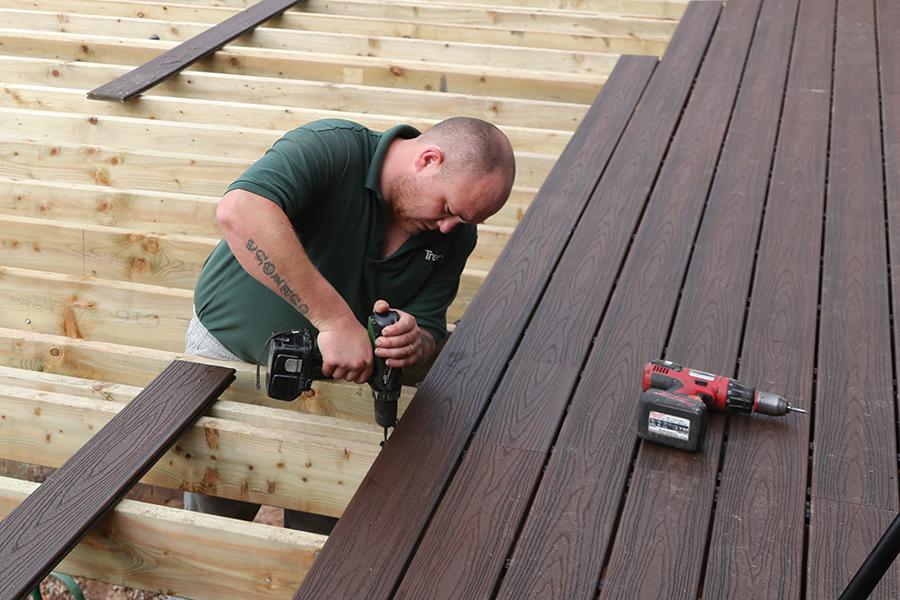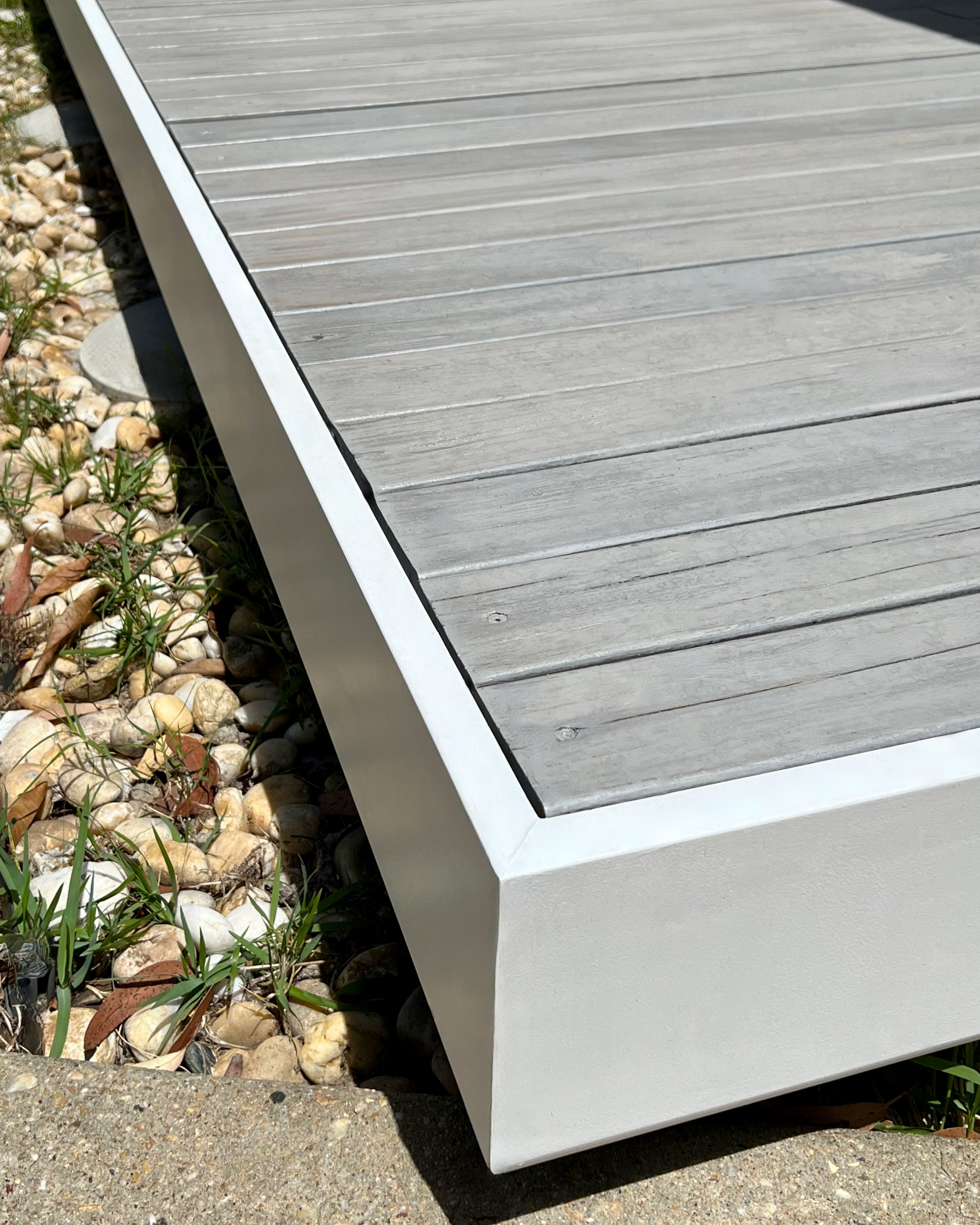Many contractors specialize in deck installation Austin for both residential and commercial properties.
Many contractors specialize in deck installation Austin for both residential and commercial properties.
Blog Article
Exactly how to Pick the Right Products for Your Deck Installation Project
Picking the appropriate materials for your deck installment task can appear difficult. There are various variables to think about, from sturdiness and maintenance to aesthetic appeals and ecological impact. The selection in between conventional timber and composite products, each with its very own collection of advantages and disadvantages, can be particularly tough. The secret is to balance your budget, style preferences, and lifestyle requires to produce a deck that will improve your exterior room for many years to find.
Comprehending the Different Kinds Of Deck Materials
When getting started on a deck installment job, the selection of materials ends up being an essential choice. Compound products, on the other hand, are a blend of wood and plastic, supplying durability and resistance to weather elements. By comprehending these distinctions, home owners can make a more enlightened decision on the most ideal deck product for their specific needs.
Examining the Toughness and Upkeep Demands of Deck Materials
Assessing the sturdiness and upkeep needs of deck products is an important step in deck installment. Resilience involves the material's capacity to withstand severe weather, deterioration, and its long life. As an example, cedar and redwood are normally resistant to rot and insects, making them long lasting selections. On the various other hand, pressure-treated timber, while long lasting, may need more maintenance because of its sensitivity to fracturing and contorting.
Understanding upkeep demands is similarly essential. Some materials require regular securing or discoloring to maintain their appearance and withstand wetness damage, while others, like composite outdoor decking, require much less upkeep. By assessing these elements, one can choose one of the most appropriate outdoor decking material, ensuring a balance in between durability, maintenance demands, and aesthetic charm.
Cost Analysis: Comparing Wood and Compound Decking
Although expense might at first seem like an additional worry, it is a significant variable when contrasting timber and composite decking. On the other hand, composite decking, while more expensive originally, needs less upkeep, possibly decreasing long-lasting expenses. Potential deck owners should consider their budget and willingness to keep their decks when determining between wood and composite outdoor decking.
Visual Appeals and Design Adaptability of Decking Products
Natural wood decking supplies a traditional, classic appearance, while composite products use a vast array of shades and structures to suit diverse tastes and designs. Composite products, while less flexible in style, are still adaptable enough for many deck layouts. These factors, as a result, are critical determinants in the choice of decking product.
Environmental Influence of Decking Materials
When picking decking products, one should consider not only appearances and durability, yet also the ecological impact. It is very important to examine the sustainability of products and explore recycled decking choices. Furthermore, comprehending the possible effect on local environments will certainly make certain an extra environmentally liable option.
Evaluating Product Sustainability
In the world of deck construction, evaluating material sustainability is an important step. This entails examining the environmental influence of each potential material, considering aspects such as the power needed for its manufacturing, its carbon impact, and its end-of-life disposal or reusing alternatives. For instance, timber is a renewable energy, yet unsustainable logging techniques can bring about logging. Composite decking products commonly integrate wood and plastic, lowering the need Visit This Link for brand-new hardwood however increasing dependence on fossil fuels. Light weight aluminum and other steels may be extra resilient and recyclable, yet their removal and processing can be energy-intensive. Hence, the option of outdoor decking products ought to stabilize functionality, visual appeals, expense, and sustainability to make certain a liable and durable installation.
Recycled Outdoor Decking Choices

Composite decking is especially prominent because of its toughness and simplicity of upkeep. It's immune to rot, bugs, and fading, making it a long-lasting alternative. Recycled plastic decking, on the various other hand, is extremely resistant and calls for minimal maintenance. While these materials might lug a greater initial price, their durability and lowered environmental effect make them a wise investment for the eco-conscious house owner.

Impact on Local Environments
While the advantages of making use of recycled materials for decking can not be overemphasized, it's similarly vital to consider the more comprehensive environmental effects of these options. Correct disposal of old outdoor decking is crucial to reducing landfill waste. Essentially, an eco-conscious deck job needs cautious material selection, sustainable sourcing, and accountable disposal.
Making Your Final Decision: Tips for Selecting the most effective Deck Materials
As the post transitions right into the subtopic of "Making Your Decision: Tips for Choosing the very best Deck Products", it is critical to comprehend the Get the facts selection of deck products available. Striking an equilibrium in between longevity and aesthetics is vital in this selection process. The following discussion will guide readers in More about the author making an educated selection based on these vital factors to consider.
Recognizing Various Deck Products
The job of choosing the best products for your deck setup can appear discouraging due to the vast range of options available. However, understanding the different products can simplify this procedure. Timber is a popular choice, offering a traditional aesthetic and price. Sorts of timber utilized include pressure-treated lumber, cedar, and redwood. Compound materials, made from a blend of wood and plastic, are low-maintenance and immune to rot and pests. Vinyl or PVC decks are also extra sturdy and need less maintenance than composite materials, but they can look much less all-natural. Aluminum decks are strong, light-weight, and immune to rot, however they are also the most pricey choice. Each product has its very own advantages and downsides, making it vital to consider your details needs before making a final choice.
Durability vs. Aesthetics Equilibrium
Balancing resilience with aesthetic appeals can be an obstacle when picking deck products. The decision typically comes down to personal choices and the deck's planned usage. High-traffic areas may necessitate durable products like composite decking, which stands up to damage but might do not have the all-natural beauty of wood. On the other hand, timber uses an ageless appeal and warmth that synthetic products battle to reproduce. Nevertheless, it requires much more maintenance and may not last as long. House owners need to strike an equilibrium, taking into consideration both the deck's functional demands and their aesthetic preferences. By doing so, they can ensure their deck continues to be a practical and appealing outside area for several years ahead.
Final thought
Finally, picking the right products for your deck setup job calls for mindful consideration of elements such as resilience, maintenance, price, visual appeals, and environmental effect. Whether you decide for traditional timber or composite materials, your option ought to line up with your budget plan, layout preferences, and way of living. Inevitably, the ideal decking product is one that improves your outdoor room and supplies enjoyment for years ahead.
Report this page